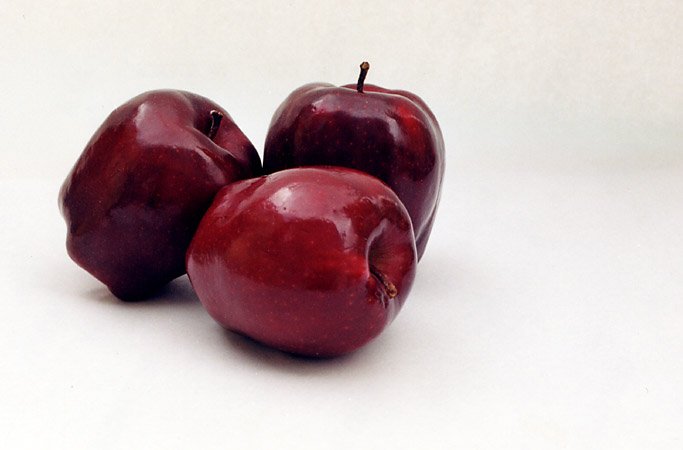sabato 1 dicembre 2007
Internet, to tell the truth, requires more critical efforts than other "traditional" media and mode, in that, while books, articles.. before to be published or printed have been checked by professional figures such as editors, publishers, reviewers…, on the Web anyone can put anything without any particular kind of supervision.
For this reason, every time we have to do a sort of "detective work"!!There are some fundamental tips at which we must to look, even if I think that unfortunately there is no a steady or standard checklist of rules to follow to evaluate a website.
Anyway, there are some points that are worthy to keep in mind. I think that the tips given in the three links in Bloggingenglish are a good guide in that, they clearly list those elements which, more or less consciously, we look for when reading online stuff.
The three sites put almost the same points, even if presented in different ways. Here I’m not going to list them as they are available typing their three respective URL.
- the URL (for example, any educational institution in UK has a ".edu" net address which tells us that the source is reliable);
- the "authority", that is, the author’s identity and the name of the organisation with which he/she works;
- the date at which the information was published (and if the subject requires it, the date of the last update);
- the references (or sources) and links.
In particular, I think that citing sources is very, very important because it proves an honest work. In other words, the author didn’t plunder anybody else’s work (we-all know how much widespread the phenomenon of plagiarism is...it is sufficient to copy and paste passages without any apposite indications), on the contrary, he gives the reader the possibility of consulting personally the original sources.
Surfing the net, I found out another important tool I hadn't know before and that can help us to judge a website’s validity. It is Google’s advanced search "links" feature: filling the apposite space with the URL of the page you are considering, you can see what other sites link to it.
The last thing I would like to point out is that we have to read as much as possible about a matter and compare the different sources. If we don’t have a term of comparison, we can’t judge the content of a page, I mean, if the information is comprehensive and detailed, if something missed and so on. If we have to deepen a topic, we can’t stop at the first thing at hand, whether we are searching on the Web or in a bookshop and library.
domenica 25 novembre 2007
youtube
This time I am going to write something about youtube (…surely nothing original since in this English course we are numerous!!).
Until now I have used youtube to watch music videos I don’t manage to watch on MTV or some interviews or sketches I missed on TV! I have never uploaded personal videos or something about me or my friends, family… (as I am a reserved person, I don’t like to put my life on the web!!).
There you have an embarrassing wealth of options: whatever you are thinking, there you’ll find videos about it. They can be amusing, informative, funny…Any good adjective crosses your mind can be suitable to youtube…but it can also be dangerous. If you use it badly, you can ruin a person’s reputation or put on the web stuff which is morally blameworthy: journalists and unscrupulous persons upload videos on people’s misfortunes and troubles, crime settings…Horrible…
I consider youtube a pastime, not a study-tool! …I mean, everything can be helpful to improve your English or to achieve other intellectul aims: you can find videos on conference, lectures, lessons…and other academic or important happenings…but for the time being, I prefer to use other means to better my English (movies, podcasts, books, music…).
And that’s all I have to say about that. (Forrest Gump)
domenica 18 novembre 2007
Podcast
 In the last weeks we are storing a lot of ways of learning English and here again, we explored a goldmine of online materials to improve it. We have to keep in mind ( I often forget it!!) that we can use these tools for any other language we are studying...Somehow they are trasversal tools!!So, always consider them!
In the last weeks we are storing a lot of ways of learning English and here again, we explored a goldmine of online materials to improve it. We have to keep in mind ( I often forget it!!) that we can use these tools for any other language we are studying...Somehow they are trasversal tools!!So, always consider them!Podcasts (and vodcasts) can easily downloaded into our PC or personal MP3 player of any type: this is the reason why they can be exploited by anyone…I mean, most of us have an MP3 player, a computer, a cell and the possibility of using such common technologies makes listening to audio files really easy and ordinary!
Podcasts can be listened wherever, whenever and however we want: mobility is their main advantage; they can be short (lasting few minutes) or long (lasting more then an hour); their contents can be free and, if we subscribe through an RSS subscription, every new podcast available is downloaded automatically to our PC (useful, isn't it?!).
Someone in the web wrote that for students they are "mobile learning".
Really, we can learn through listening, no matter where we are, and if sometimes we don’t feel like reading, now we can do exercise anyway…and (what is more interesting) we can listen not only to audio files about grammar but also about dialogue, real life episodes, audio books, news and so on!
Here you are three podcasts which I chose.
- In English as a Second Language (ESL) there are dozens of MP3 files which can be downloaded or simply listened to and read. Each of them has: its own title and short sentences explaining the content, the speaker’s name.
- Another website for our listening practise could be this one which contains many podcasts about real conversation whose topics range from food to adverts. You can also download the conversation transcription (in PDF format as well).
- The last one contains podcasts about audio books. Every title is followed by its author’s name. There is a useful menu on the left side of the page where books are divided into three macro-categories (fiction, children, non-fiction); each of them contains sub-categories further divided into sub-genres (e.g. Fiction-thrillers-ghosts). When you have chosen what kind of book you want to read, there are few key-words or sentences describing the content.
martedì 13 novembre 2007
De.li.cio.us
 Reading the introductory explanation on bloggingenglish and some definitions from sources such as Wikipedia, I finally figured out what social bookmaking means. Near "bookmarking" now an adjective appears, that is, "social", a word which contains implicitly the idea of sharing and collaboration.
Reading the introductory explanation on bloggingenglish and some definitions from sources such as Wikipedia, I finally figured out what social bookmaking means. Near "bookmarking" now an adjective appears, that is, "social", a word which contains implicitly the idea of sharing and collaboration.Since I always use the same computer, I bookmark links to my favourite websites in my web browser. But now I know there is an alternative way to that, by using a social bookmarking website, such as De.li.cio.us. In other words, this means that you can get to your "u.r.l. repository" anywhere you are, from any computer.
De.li.cio.us can be seen as a search engine where, unlike Google, websites are scanned by people and not by a pc. It gives you the possibility to save time and retrieve good links.
As bookmarks are public (but you can also decide not to share some or all of them with others), people create networks where websites are organised by tags.
Thanks to De.li.cio.us you can discover much more about your favourite subject-matters or to gain knowledge of many other things.
- Like me, Giovanna chose a website about slang. In Urban dictionary every headword is followed by its definition and some examples. I think it is important the fact that this site is often updated, showing, once again, how fast language changes in time. It has an inner search engine and a clickable alphabet to make easier your search.
- Alessia chose a website I always use, that is, WordReference. It offers the opportunity to translate a word into different languages, to find English definitions, to link to Merriam-Webster or to dictionary.com in order to compare word definitions. I think it is a fundamental tool for writing, understanding the different connotations of words and using them properly. It is also useful its Italian-English forum!
- I enjoyed Caterina’s website about how to write, think and learn more clearly by University of Georgia. Suggestions, disguised as slides, are concise and very clear. Some slides have a title followed by brief explanatory sentences, signalled by bullet points; some have impressive quotations. I think it’s nice and fast to read!
- One of Stefania’s website is about exercises. It is divided into five sections: grammar, vocabulary, verb, listening and reading. As she wrote, there are very many exercise and, what is more important, they are divided into levels, from the elementary to the advanced. You can also watch movies (drama and animation) with or without subtitles…Wonderful, isn’t it?!
- Marta chose a website where you can find tools to improve English as a second language. There are many sections: since I’m a student I went to the "Student" menu at the top of the page and I surfed for a little while. There are multiple-choice exercises (with final grading) whose degree of difficulty varies according to your English level, I mean, if you are a beginner or an intermediate. If you register, you can have free access to quizzes to test your knowledge.
martedì 6 novembre 2007
Sorry group H…I am late!!
In these days I am trying to be familiar with feeds, bloglines…and to be honest I don’t know what to think about it!! I mean…during the last few weeks I have acquired a lot of new pieces of information on blogosphere and on web tools…and now I am a bit bewildered!…Probably I am not disposed to computer science but understanding and gaining new knowledge take me some time!!…Every thing which is new for me arouses my curiosity and, also this time I’ve tried to understand better these new matters surfing websites such as Wikipedia!
As many of you have already written, an online service such as Bloglines is very useful in saving time and making life easier, above all for those persons who have to manage lots of new feeds, weblogs and so on! In my case, I have not a great deal of web information to manage, but, if in the future I need it, this knowledge will be helpful!!
In order to understand how to exploit Bloglines, I created a folder with my peers’ blogs and I also subscribed some suggested blogs regarding literature and dictionary…right to see how this service works! !
lunedì 29 ottobre 2007
 It is time now to draw some conclusions on these two first weeks of blogging.
It is time now to draw some conclusions on these two first weeks of blogging.As usual, to become familiar with a new way of communication requires some efforts. I usually use Internet but I have never been interested in blogosphere...and so, for me, this course offers the opportunity to approach to something that otherwise I would have never exploited.
I found useful, as first step, to surf some websites about blog etiquette (e.g. the rules regarding how to behave properly in such a context) thanks to which I acquired a basic specific vocabulary as well (e.g. "blogroll", "post", "comment", "authority"…)
Through e-tivity 2, I could realise how much wide and various is the blogosphere and how I can find whatever I want, simply using an amazing tool like Tecnorati or connections like links.
giovedì 25 ottobre 2007
I like having the chance to change ways to reach the places I normally hang out and to notice and discover things I’ve never seen or noticed before.
Two websites I often use are:
- http://www.musicsite.it/. Everybody happens to listen to a piece of music but to ignore who the artist or the title is...Here I’ll give you a possible solution to satisfy you curiosity!!
Surfing this site, you can find information, for example, about the soundtracks of films or ads, theme songs, music chats, forum…. - http://maps.google.it/ . If you don’t know where a street, a square, a restaurant, a shop or whatever else is, you can go to google maps and also to see how to get there from the place where you are. It’s fantastic!

